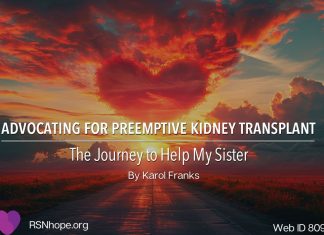When I was in college, my favorite subject was microbiology. Microbiology is the study of microorganisms such as bacteria, viruses, and fungi. One of my fondest memories of the class was after being provided an “unknown” on a petri dish, I had to use multiple tests to try to determine what my “unknown” was. It was, to me, the coolest puzzle ever!
Unfortunately, this wasn’t my only required course. In addition to microbiology, I took equally challenging courses: Anatomy and physiology (A&P), and chemistry.
In A&P you learn about all the internal and external structures of the human body along with the functions of those structures. Learning anatomy is a puzzle of its own! Chemistry is the branch of science that identifies the properties, composition, and structure of elements and compounds (eye-crossing in confusion). It also shows how these things can change, and indicates the energy they release or absorb when they change (what?). It’s about memorizing the periodic table. You learn a new language when you see (and remember) how adding to an element changes its name. Personally, learning German was easier. It’s also a LOT of math. Balancing equations was not my forte’ in high school algebra, and I did not get any better! Chemistry was like the Rubik’s Cube of puzzles!
Thank goodness microbiology and anatomy came easily to me, because I spent MUCH, MUCH, MUCH more time grasping the concepts of physiology and chemistry. After many a night with study groups and an over-abundance of caffeine, I graduated.
As fate would have it, three short years after graduation, I was diagnosed with chronic kidney disease (CKD). I remember the call from my healthcare provider like it was yesterday, “Cher … creatinine. Do you know what that is? More tests, and a referral to another doctor.” I was in shock; those were the main points I grasped from the conversation. The first thing I did was dust off my A&P textbooks. They were oversized, and heavy, and had multiple notes that I had written alongside the text. What I remembered was how the kidneys’ physiology/function was extraordinarily complex. I wish I would have worked harder to understand them at the time.
What I did remember was the location of the kidneys, and how they filtered the blood, removed fluids, and did a lot of other stuff. As my CKD progressed to ESRD, I became personally familiar with my body’s “master chemist” and realized it was struggling, just as I had in college. It was unable to balance equations – it was unable to balance/manage complex steps of excretion and reabsorption. It was also struggling to manage my body’s salt, potassium, and acid content. As my blood pressure started rising, my red blood cells started lowering and my kidneys could no longer produce enough hormones and vitamins to affect the functions of my other organs.
When I started peritoneal dialysis, those numbers all started improving. Dialysis was helping me balance what my own kidneys could no longer manage. After a year, my brother (who, incidentally, was exceptional at comprehending math and chemistry) donated a kidney, and now “Kenney the Kidney” has been my “master chemist” for 23 years. After all these years, I’d say Kenny graduated with honors!
 Cher Thomas, RDH, is a registered dental hygienist and a renal transplant recipient. After her kidneys failed due to ANCA positive vasculitis, in 1999 her brother became her kidney donor. Cher utilizes her experience with peritoneal dialysis and organ transplantation to explore the relationship between oral and renal health. She lives in Galveston, Texas.
Cher Thomas, RDH, is a registered dental hygienist and a renal transplant recipient. After her kidneys failed due to ANCA positive vasculitis, in 1999 her brother became her kidney donor. Cher utilizes her experience with peritoneal dialysis and organ transplantation to explore the relationship between oral and renal health. She lives in Galveston, Texas.
More from Cher Thomas:
Video: Navigating Insurance & Medications
What Gifts Will CKD Survivors Like This Year?
In the World of COVID: My thought process toward vaccination
Arm Your Immune Response with Routine Protection Against Disease
Take a Good Bite: Dental Health and Nutrition
Taking a Bite Out of Gum Disease
Another Reason for Good Oral Hygiene
Gaining that Winning Smile: Healthy Gums for a Healthy Life
Web ID 8032







